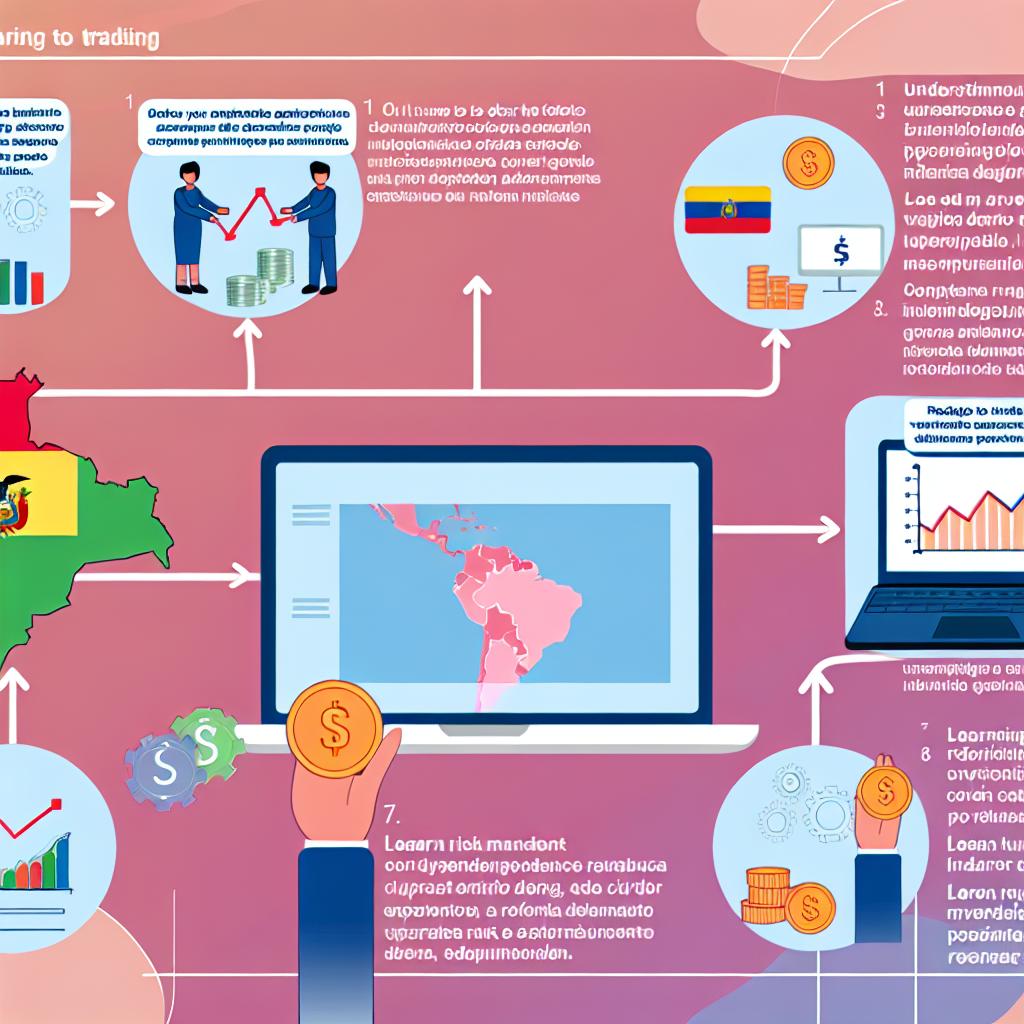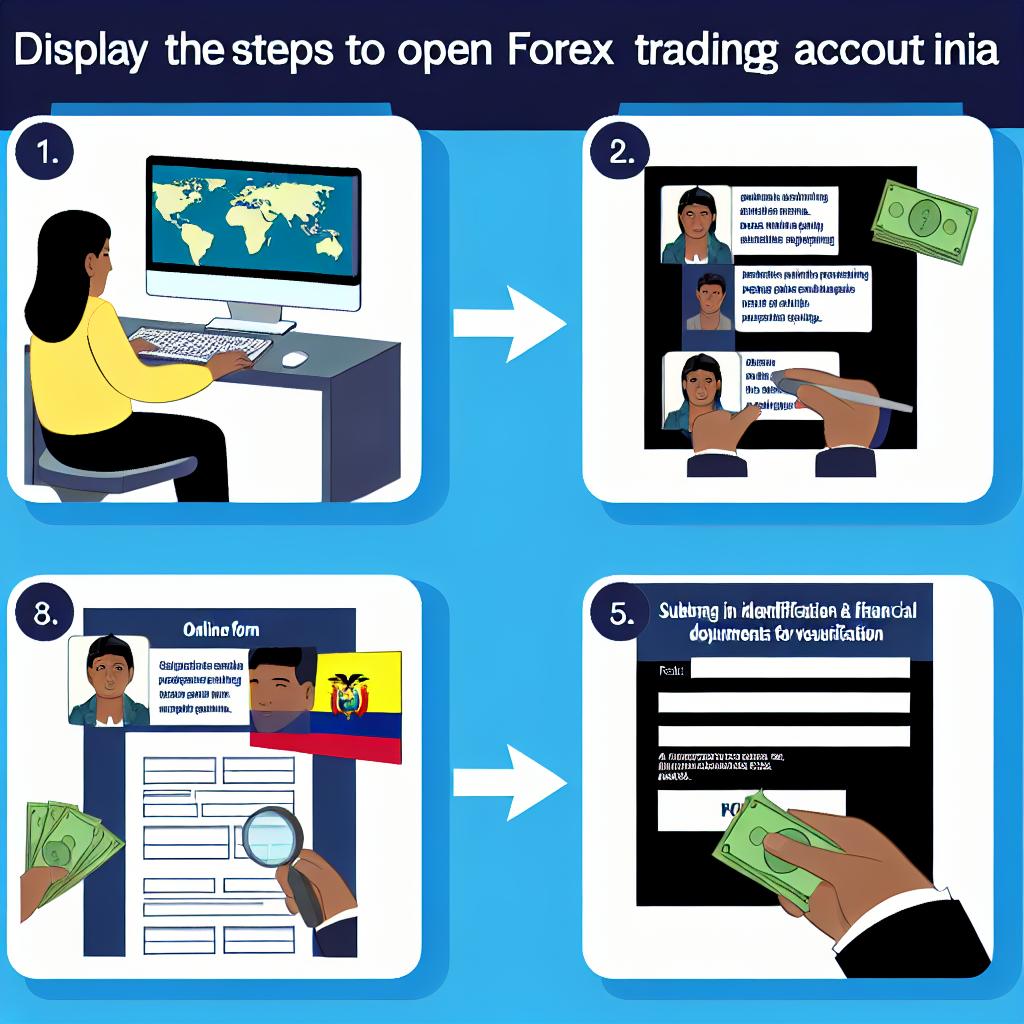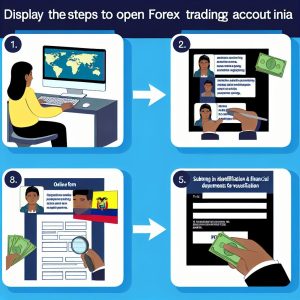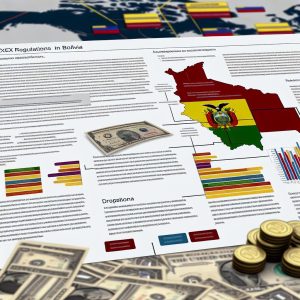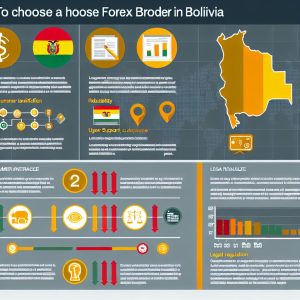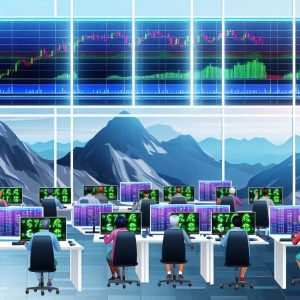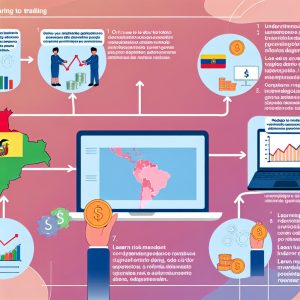How to Start Forex Trading in Bolivia
Understanding Forex Trading




Foreign exchange, commonly referred to as forex trading, entails the dynamic process of buying and selling currencies worldwide. It stands as one of the most liquid financial markets, providing a platform for continuous trading 24 hours a day. For individuals residing in Bolivia, entering this expansive market necessitates a comprehensive understanding of both the general forex ecosystem and the particular financial landscape within Bolivia.
The Basics of Forex Trading
At its core, forex trading is predicated on the concept of currency pairs. Each pair consists of two currencies: the base currency and the quote currency. For instance, in the currency pair EUR/USD, the EUR serves as the base currency while the USD acts as the quote currency. The overarching goal for traders is to capitalize on the fluctuations in the values of these currencies, striving to buy low and sell high or vice versa, depending on market conditions.
Leverage and Margin
One of the defining features of forex trading is the use of leverage, which allows traders to control substantial market positions with a relatively small amount of actual capital. This amplifies both potential profits and potential losses. Consequently, comprehending the concept of margin becomes essential. Margin represents the minimum account balance that traders must maintain to uphold a leveraged position. Recognizing and managing these elements is crucial for effectively navigating risks associated with forex trading.
Legal and Regulatory Environment in Bolivia
For aspiring forex traders in Bolivia, understanding the regulatory landscape is paramount. The country’s financial activities are overseen by the Autoridad de Supervisión del Sistema Financiero (ASFI). Traders need to ensure adherence to local regulations, which encompass guidelines related to currency trading and foreign exchange operations. Familiarity with these regulations is vital to conducting forex trading activities legally and ethically within Bolivia.
Choosing a Broker
Selecting an appropriate forex broker stands as a pivotal step toward trading success. Traders are advised to opt for brokers who are regulated by reputable international entities. Additionally, brokers should provide competitive spreads and fees to ensure cost-effective trading. A high-quality broker will offer robust trading platforms, such as MetaTrader 4 or 5, alongside responsive and efficient customer support to assist traders as needed.
Account Types
Forex brokers generally offer a variety of account types designed to cater to different levels of trading experience and capital availability. These accounts may range from micro accounts suitable for beginners to standard accounts and VIP accounts for more seasoned or high-capital traders. When selecting an account type, it is crucial to consider your personal trading capital and your willingness to take risks.
Getting Started
Set Up a Trading Plan
Embarking on a forex trading journey without a solid plan is akin to setting sail without a destination. A well-structured trading plan should outline personal financial goals, risk tolerance, and preferred trading strategies. Establishing such a plan helps maintain discipline, reduces the likelihood of emotionally-driven decisions, and sets a clear path toward achieving long-term trading objectives.
Demo Accounts
Before venturing into live trading with real money, the use of a demo account is highly beneficial. A demo account allows traders to practice strategies and refine techniques without the financial risk inherent to actual trading. Most reputable brokers offer free demo accounts that simulate real market conditions, offering an invaluable arena for honing trading skills.
Understanding Market Analysis
Competency in market analysis is fundamental to successful forex trading. Traders must develop skills in both technical and fundamental analysis. Technical analysis involves the study of price charts and various technical indicators to predict future market movements. In contrast, fundamental analysis assesses economic events and global geopolitical developments that might influence currency values, aiding traders in making informed decisions.
Risk Management
Effective management of risk is a cornerstone of sustainable forex trading. Employing tools such as stop-loss orders can help limit potential losses. Moreover, traders ought to manage position sizes relative to their overall portfolio size, ensuring that any single position does not disproportionately affect their trading capital. Vigilant risk management preserves capital and enhances a trader’s ability to weather the uncertainties of the forex market.
Continuous Learning
The forex market is an ever-evolving entity, characterized by constant change and adaptation. Continuous learning is vital for traders seeking to remain informed about the latest market trends and trading strategies. Engaging with educational resources, such as webinars, forex forums, and specialized courses, can significantly enhance a trader’s knowledge base over time, equipping them to adapt to new market conditions proficiently.
Conclusion
Initiating forex trading in Bolivia necessitates a thorough comprehension of the forex market’s operational mechanisms, a sound understanding of the local legal framework, and the careful selection of a suitable broker. Through meticulous planning, ongoing education, and disciplined risk management, Bolivian traders can effectively navigate the complexities of the forex markets. By doing so, they can potentially achieve success in this highly liquid and dynamic financial domain.
This article was last updated on: April 14, 2025
